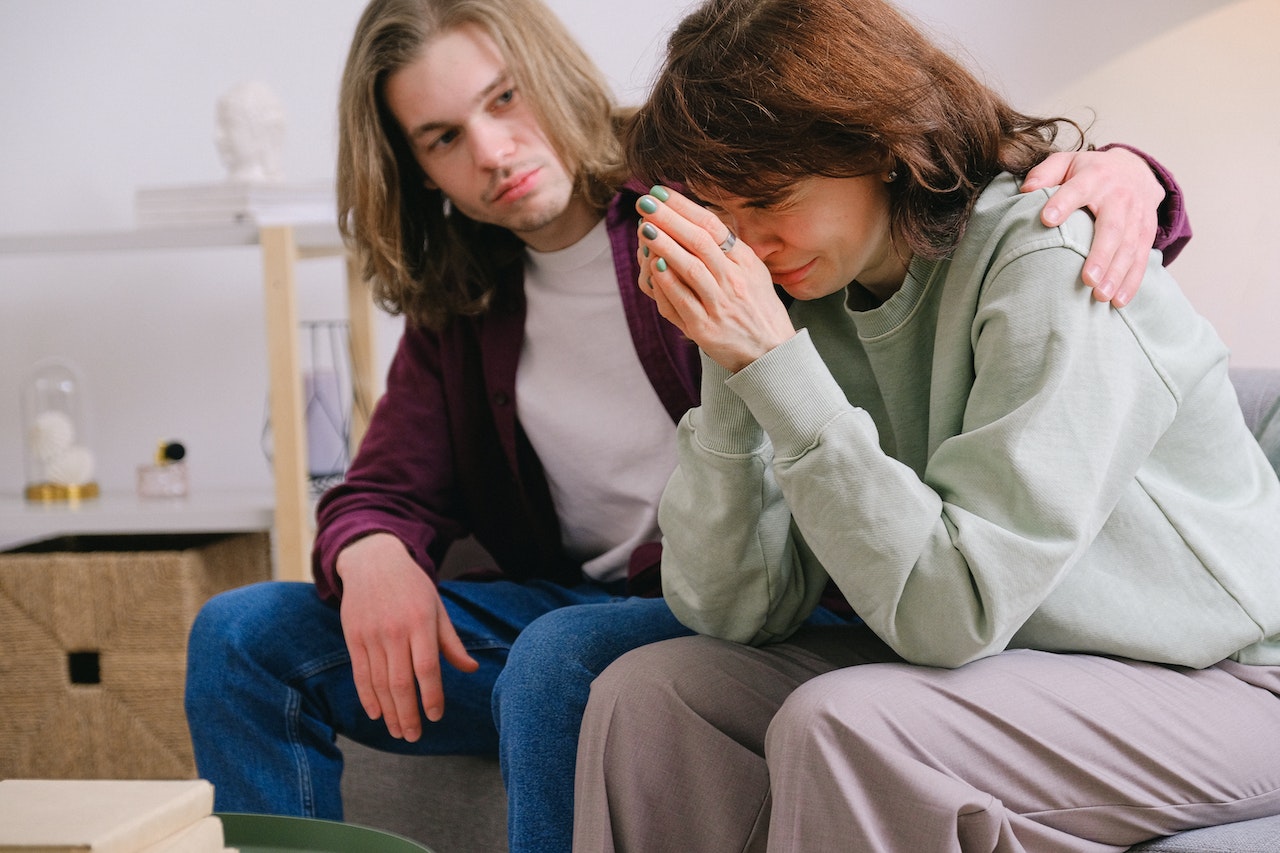Relationships are like plants; they require nourishment, care, and patience to grow. Just as plants experience growing pains when they stretch their roots and reach for the sun, relationships too can go through challenging phases. These growing pains in a relationship are natural and often serve as opportunities for personal and mutual growth. In this article, we will explore five ways to adjust to changes within your relationship, helping you navigate through these inevitable challenges.
5 Ways to Adjust to Changes within Your Relationship
1. Love Your Partner “As Is”
One of the fundamental keys to overcoming growing pains in a relationship is accepting your partner for who they are, embracing their quirks, flaws, and imperfections. We all have our idiosyncrasies, and it’s crucial to remember that no one is perfect. Instead of focusing on changing your partner, redirect your energy towards understanding and appreciating their unique qualities.
Let’s imagine Sarah and David, a couple who have been together for several years. David is a meticulous planner, always organizing every aspect of their lives, while Sarah is more spontaneous and free-spirited. Initially, their differing approaches caused friction, but over time, they learned to love and respect each other’s individuality. They embraced the fact that their differences brought balance and excitement to their relationship.
2. Be Flexible
Flexibility plays a vital role in any relationship, especially during times of growth and change. It’s important to recognize that both you and your partner are constantly evolving, and this evolution may require adjustments and compromises. Being rigid and resistant to change can lead to conflict and stifle the growth of your relationship.
For example, let’s consider Tom and Lisa, a couple who recently moved in together. They quickly realized that living together meant adapting to each other’s habits and preferences. Tom preferred a neat and orderly home, while Lisa was more relaxed about tidiness. Instead of becoming frustrated, they found a middle ground. They created a cleaning schedule and designated spaces where each could express their personal style. This compromise allowed them to maintain their individuality while fostering harmony in their shared space.
3. Spend Some Quality Time
In the midst of our busy lives, it’s easy to lose sight of the importance of quality time with our partners. Spending dedicated time together allows you to nurture your emotional connection, foster intimacy, and strengthen your bond. By engaging in shared activities and creating memorable experiences, you can navigate the growing pains in your relationship more effectively.
Imagine Mark and Emily, a couple who both had demanding careers. They found themselves caught up in the daily grind, rarely spending quality time together. Recognizing the need to reconnect, they made a conscious effort to set aside one evening each week for a date night. They took turns planning activities, whether it was trying a new restaurant, going for a hike, or simply enjoying a cozy movie night at home. This intentional investment in their relationship helped them grow closer and provided a much-needed break from their hectic routines.
4. Speak Up
Communication is the cornerstone of any healthy relationship, and it becomes even more critical during times of change and growth. Expressing your thoughts, concerns, and emotions openly and honestly fosters understanding and helps prevent misunderstandings. It’s essential to create a safe space where both partners feel comfortable sharing their feelings without fear of judgment or criticism.
Consider Alex and Mike, a couple who found themselves going through a challenging phase due to external stressors. Instead of bottling up their frustrations, they made a conscious effort to communicate openly. They held regular check-ins, providing a platform for each partner to share their concerns and offer support. By acknowledging their shared struggles and working together to find solutions, they were able to navigate the growing pains in their relationship with greater ease.
5. Give the Same Respect You Want to Receive

Respect forms the foundation of a healthy and thriving relationship. It encompasses treating your partner with kindness, empathy, and understanding. To successfully overcome growing pains, it’s crucial to extend the same level of respect and consideration that you desire for yourself.
Think of Sarah and John, a couple who found themselves constantly interrupting each other during conversations. They realized that this pattern undermined effective communication and made both feel unheard. They made a pact to actively listen to each other, waiting for their turn to speak and showing genuine interest in what the other had to say. This simple act of respect transformed their conversations, fostering a deeper connection and resolving many of the growing pains they had been experiencing.
Growing pains in a relationship – Embrace Growth Together
Relationships are a dynamic journey, filled with highs, lows, and everything in between. Embracing the growing pains in a relationship as opportunities for personal and mutual growth can lead to a stronger and more fulfilling partnership. By loving your partner “as is,” being flexible, spending quality time together, speaking up, and giving the same respect you want to receive, you can adjust to changes and navigate the challenges that arise along the way.
12 Signs Your Relationship Isn’t Over, It’s Just Going Through Growing Pains
Growing pains in a relationship- More Arguments
Disagreements and fights are a normal part of any relationship. However, if you notice that you’re arguing more frequently and intensely, it may mean that your relationship is going through a growth phase. This can be an opportunity to address underlying issues, improve communication, and strengthen your connection.
Read also – What kills long distance relationship?
Changed Communication:
Communication is the key to a healthy relationship. If you see a change in your communication patterns, like more misunderstandings or difficulty expressing your feelings, it could be a sign that your relationship is evolving. Use this as an opportunity to improve your communication skills and find new ways to connect with your partner.
Growing pains in a relationship- Shift in Priorities
As individuals and as a couple, our priorities may change over time. If you or your partner are experiencing shifts in personal goals, career aspirations, or life dreams, it can cause temporary tension within the relationship. Embrace these changes as opportunities for growth and support each other as you navigate new paths.
Feeling Disconnected
During times of growth, it’s common to feel temporarily disconnected from your partner. You might feel like you’re not on the same wavelength or that your connection has weakened. Recognize that this disconnection is temporary and focus on rebuilding your emotional bond through open communication and shared experiences.
Intense Emotions
Growing pains often bring forth strong emotions. You may feel frustrated, sad, or even doubtful. Instead of pushing these emotions aside, acknowledge and explore them together with your partner. This process can lead to deeper understanding and emotional growth.
Questioning Compatibility
It’s normal to question the compatibility of your relationship when faced with growing pains. Remember that growth requires change, and change can sometimes create temporary doubts. Instead of seeing these doubts as a sign of incompatibility, view them as opportunities to assess your needs, expectations, and goals within the relationship.
Less Time Together
As individuals evolve and take on new responsibilities, the amount of time spent together may fluctuate. If you find yourselves having less time for shared activities or quality time, it may simply be a reflection of the growth happening within your lives. Find creative ways to stay connected, even during busy periods, and make intentional efforts to spend time with each other.
Growing pains in a relationship- Seeking Individuality
Personal growth often involves discovering and embracing individual interests and identities. If you or your partner are actively exploring personal hobbies, passions, or friendships, it may temporarily create a sense of distance within the relationship. Encourage and support each other’s individuality, as this will ultimately contribute to a stronger foundation for the partnership.
Read also – Five stepping stones in a relationship
Reevaluating Relationship Dynamics
Growing pains can lead to a reevaluation of the dynamics within your relationship. Roles and responsibilities may shift, and power dynamics may come into question. Embrace these moments as opportunities to create a more equal and balanced partnership that aligns with both of your changing needs and aspirations.
Growing pains in a relationship- Lack of Intimacy
During periods of growth, it’s not uncommon for intimacy to temporarily decline. This can be due to increased stress, personal challenges, or shifting priorities. Instead of seeing this as a sign of a failing relationship, actively work together to reignite the spark and prioritize intimacy in new and creative ways.
Desire for Personal Space
Growth often involves the need for personal space and alone time. If you or your partner express a desire for solitude or individual pursuits, it doesn’t mean you’re growing apart. Respect each other’s need for space and use it as an opportunity to nurture your own personal growth, which can ultimately enhance the strength of your relationship.
Shared Growth and Learning
Growing pains in a relationship can lead to shared growth and learning experiences. By facing challenges together, you and your partner have an opportunity to learn more about yourselves and each other. Embrace the journey of growth and view it as a way to deepen your bond and create a stronger partnership.

FAQS – Growing pains in a relationship
To deal with relationship growing pains, it’s important to communicate openly, embrace change, and be flexible. Show empathy and understanding towards your partner, actively work on improving communication, and be willing to adapt to new dynamics within the relationship
You know you’re growing in a relationship when you experience personal and mutual development. It’s characterized by increased emotional intimacy, improved communication, shared goals and aspirations, and a willingness to support each other’s individual growth.
Growing with someone in a relationship means evolving together and supporting each other’s personal growth. It involves embracing change, overcoming challenges as a team, and continuously improving the relationship through open communication, understanding, and shared experiences.
You may feel that your relationship is not growing if there is a lack of emotional intimacy, stagnant communication patterns, constant conflict without resolution, or a sense of disconnection. A lack of shared goals and individual growth can also be indicative of a relationship that is not growing.
Signs that your relationship may be fading include a decrease in communication and quality time spent together, lack of emotional connection or intimacy, diminishing effort from one or both partners, and a sense of apathy or indifference towards the relationship’s well-being
You may be growing apart from your boyfriend if you notice a decrease in shared interests and goals, diminishing emotional connection, frequent disagreements without resolution, a sense of distance or disengagement, and a lack of support for each other’s personal growth and aspirations.
Conclusion
Remember, relationships require effort, patience, and a willingness to evolve. By taking these steps, you can not only overcome the growing pains in your relationship but also thrive together on the path of love and companionship.
